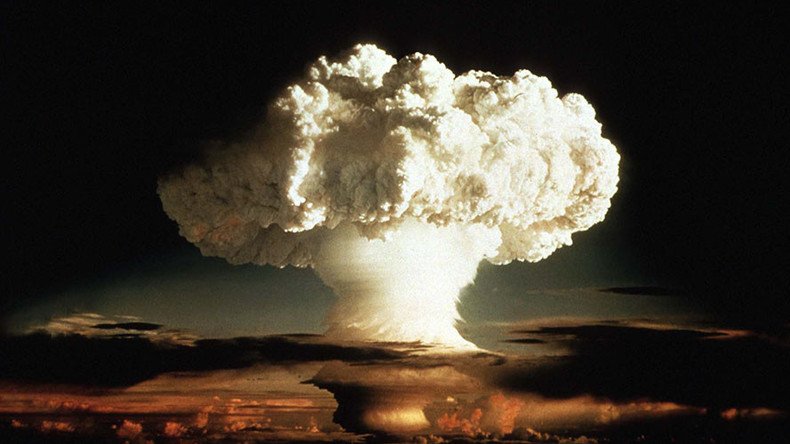Report on Soviet nuclear scare remains top secret over national security fears

British government officials have refused to release documents relating to the 1983 Able Archer incident, when a NATO military exercise came close to provoking nuclear war with the Soviet Union.
Security chiefs insist a report on the crisis must remain secret on national security grounds, as information within the document is still relevant today.
US officials have released several documents concerning the incident which describe how US-Soviet relations had dangerously deteriorated in the run-up to the controversial military exercise which simulated a nuclear attack.
The dispute comes as NATO announced it would update its nuclear doctrine in response to Russian plans to buy 40 new intercontinental ballistic missiles.
After months of deliberation, the Cabinet Office blocked the release of a document titled “The Detection of Soviet Preparations for War Against NATO,” citing section 23 of the Freedom of Information Act, which imposes an absolute exemption from disclosure – with no public interest defense – of security and intelligence material.
The document was requested by Nate Jones, of the US National Security Archive attached to George Washington University in Washington D.C.
Despite Jones’ request being supported by the former head of GCHQ’s Soviet Division, it was denied by Cabinet officials.
Jones then appealed to Information Commissioner Christopher Graham, who also rejected the request on national security grounds.
Michael Gove plots against FOI to make it harder for people to seek information from state http://t.co/A3jDXVkiwRpic.twitter.com/sJQI7WrMqh
— RT UK (@RTUKnews) June 23, 2015Graham accepted there was “a public interest in understanding the lessons learned from Able Archer 83, and that disclosure could potentially add some value to what was already publicly known regarding the exercise.”
However, he argued there was a “strong public interest in safeguarding national security” and said the JIC report was “still relevant to national security today.”
Writing on the National Security Archive blog before his request was rejected, Jones said the document is “the first comprehensive report that warned that a November 1983 nuclear release exercise called Able Archer 83 could have spooked the Soviets into a pre-emptive nuclear attack against the West.”
The Cabinet Office’s decision to block the document’s release follows the declassification of several US reports relating to Able Archer 83.
UK may restart Cold War-style nuclear drills – senior diplomat http://t.co/Nff5zUqAHypic.twitter.com/9YVIQkdlap
— RT UK (@RTUKnews) October 9, 2015One document looked at the role of Oleg Gordievsky, a KGB officer who defected to Britain and who warned Washington about the dangerous effect of President Ronald Reagan’s firebrand rhetoric on a paranoid Kremlin.
Another recently released document describes how Able Archer 83 “may have inadvertently placed our relations with the Soviet Union on a hair trigger” and that President Reagan was “given assessments of Soviet attitudes and actions that understated the risks to the United States.”
Some historians claim the Able Archer 83 incident is the closest the world has come to nuclear war since the Cuban Missile Crisis of 1962.
Soviet forces readied their nuclear weapons and placed air units in East Germany and Poland on alert after the military exercise led Politburo members to believe NATO was preparing for war.












